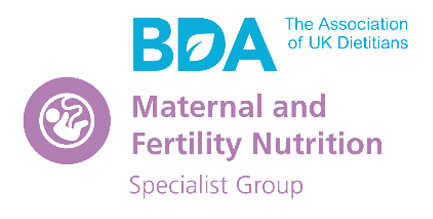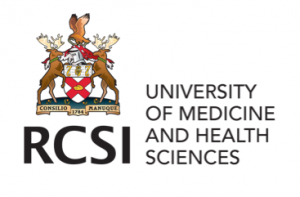Following on from our e-symposium, ‘Innovations in Women’s Health‘ we’ve pulled together some of the key resources and references discussed within the webinar. If you missed the live webinar, you can register to watch the recording.
BDA MATERNITY AND FERTILITY SPECIALIST GROUP

The Maternal and Fertility Nutrition Group are a specialist group of the British Dietetic Association. The ambitious and passionate group are dedicated to research, education and improving the standards and quality of care to patients accessing such services nationwide.
![]() @BdaMaternal
@BdaMaternal ![]() @bda_maternalandfertility
@bda_maternalandfertility
Resources:
- Fertility Nutrition Course for Healthcare Professionals – by Fertility Dietitian UK – This course brings you the latest evidence-based information in the field of fertility nutrition, equipping you with the information you need to support your clinical practice. Sign up.
- e nutrition and pregnancy course – mix of live and recorded sessions. Email maternalfertilitysg@bda.uk.com if interested.
KING’S COLLEGE LONDON

The research of the Department of Women and Children’s Health at King’s College London, centres around the concept of the life course of health. The health of the next generation begins at the earliest stages, the research spans preconception, maternity, infancy and adolescence.
RCSI – University of Medicine and Health Sciences
The School of Population Health in RCSI University of Medicine and Health Sciences seeks to better understand and address the complex and ever-changing barriers to better health, in Ireland and globally. The School integrates multiple scientific disciplines, including public health and epidemiology, data science, health psychology, and healthcare outcomes.
SESSION: GESTATIONAL WEIGHT GAIN – AN UPDATE

Speaker: Lucilla Poston
Guidelines/Studies/Resources
Gilmore LA, Klempel-Donchenko M, Redman LM. Pregnancy as a window to future health: Excessive gestational weight gain and obesity. Semin Perinatol. 2015;39(4):296-303. doi:10.1053/j.semperi.2015.05.009
Goldstein RF, Abell SK, Ranasinha S, et al. Association of Gestational Weight Gain With Maternal and Infant Outcomes: A Systematic Review and Meta-analysis. JAMA. 2017;317(21):2207-2225. doi:10.1001/jama.2017.3635
LifeCycle Project-Maternal Obesity and Childhood Outcomes Study Group, Voerman E, Santos S, et al. Association of Gestational Weight Gain With Adverse Maternal and Infant Outcomes. JAMA. 2019;321(17):1702-1715. doi:10.1001/jama.2019.3820
National Institute for Health and Care Excellence (NICE). Diabetes in Pregnancy: management from preconception to the postnatal period. 2015, updated 2020. Available at: https://www.nice.org.uk/guidance/ng3 (Accessed 01/03/2024).
Santos S, Voerman E, Amiano P, et al. Impact of maternal body mass index and gestational weight gain on pregnancy complications: an individual participant data meta-analysis of European, North American and Australian cohorts. BJOG. 2019;126(8):984-995. doi:10.1111/1471-0528.15661
World Health Organisation (WHO). Development of global gestation weight gain standards. 2023. Available at: https://www.who.int/teams/nutrition-and-food-safety/development-of-global-gestational-weight-gain-standards (Accessed 01/03/2024).
SESSION: DIGITAL HEALTH AND TECHNOLOGY FOR DIABETES IN PREGNANCY: THE NEW FRONTIER

Speaker: Sara White
Guidelines/Studies/Resources
Diabetes in pregnancy: management from preconception to the postnatal period (NICE guidance NG3). Available at: https://www.nice.org.uk/guidance/ng3: (Accessed 05.03.2024)
HAPO Study Cooperative Research Group, Metzger BE, Lowe LP, et al. Hyperglycemia and adverse pregnancy outcomes. N Engl J Med. 2008;358(19):1991-2002. doi:10.1056/NEJMoa0707943v
Murphy HR, Howgate C, O’Keefe J, et al. Characteristics and outcomes of pregnant women with type 1 or type 2 diabetes: a 5-year national population-based cohort study. Lancet Diabetes Endocrinol. 2021;9(3):153-164. doi:10.1016/S2213-8587(20)30406-X
Battelino T, Danne T, Bergenstal RM, et al. Clinical Targets for Continuous Glucose Monitoring Data Interpretation: Recommendations From the International Consensus on Time in Range. Diabetes Care. 2019;42(8):1593-1603. doi:10.2337/dci19-0028
https://doi.org/10.1371/journal.pdig.0000015 Digital health interventions for gestational diabetes mellitus: A systematic review and metaanalysis of randomised controlled trials, 2022, Leblalta et al.
Mackillop L, Hirst JE, Bartlett KJ, et al. Comparing the Efficacy of a Mobile Phone-Based Blood Glucose Management System With Standard Clinic Care in Women With Gestational Diabetes: Randomized Controlled Trial. JMIR Mhealth Uhealth. 2018;6(3):e71. Published 2018 Mar 20. doi:10.2196/mhealth.9512
Open-source automated insulin delivery: international consensus statement and practical guidance for health-care professionals. 2022, Braune et al. https://www.sciencedirect.com/science/article/pii/S0140673617324005: Continuous glucose monitoring in pregnant
women with type 1 diabetes (CONCEPTT): a multicentre international randomised controlled trial, 2017, Feig et al.
https://www.nejm.org/doi/full/10.1056/NEJMoa2303911: AiDAPT: Automated insulin delivery amongst pregnant women with type 1 diabetes, 2023, Lee et al.
Guidelines/Studies/Resources
FOOD INSECURITY AND HEALTH AROUND THE PERINATAL PERIOD

Speaker: Dr Zoe Bell
Guidelines/Studies/Resources
Bell Z, Scott S, Visram S, Rankin J, Bambra C, Heslehurst N. Children’s nutritional health and wellbeing in food insecure households in Europe: A qualitative meta-ethnography. PLoS One. 2023;18(9):e0292178. Published 2023 Sep 29. doi:10.1371/journal.pone.0292178
Bell Z, Scott S, Visram S, Rankin J, Bambra C, Heslehurst N. Experiences and perceptions of nutritional health and wellbeing amongst food insecure women in Europe: A qualitative meta-ethnography. Soc Sci Med. 2022;311:115313. doi:10.1016/j.socscimed.2022.115313
SESSION: Polycystic ovary syndrome (PCOS) and obesity

Juhász, A.E., Stubnya, M.P., Teutsch, B. et al. Ranking the dietary interventions by their effectiveness in the management of polycystic ovary syndrome: a systematic review and network meta-analysis. Reprod Health 21, 28 (2024). https://doi.org/10.1186/s12978-024-01758-5
Lalonde-Bester S, Malik M, Masoumi R, et al. Prevalence and Etiology of Eating Disorders in Polycystic Ovary Syndrome: A Scoping Review. Adv Nutr. Published online February 24, 2024. doi:10.1016/j.advnut.2024.100193
Nazirudeen R, Sridhar S, Priyanka R, et al. A randomized controlled trial comparing myoinositol with metformin versus metformin monotherapy in polycystic ovary syndrome. Clin Endocrinol (Oxf). 2023;99(2):198-205. doi:10.1111/cen.14931
Pandurevic S, Mancini I, Mitselman D, et al. Efficacy of very low-calorie ketogenic diet with the Pronokal® method in obese women with polycystic ovary syndrome: a 16-week randomized controlled trial. Endocr Connect. 2023;12(7):e220536. Published 2023 Jun 12. doi:10.1530/EC-22-0536
Teede HJ, Tay CT, Laven JJE, et al. Recommendations From the 2023 International Evidence-based Guideline for the Assessment and Management of Polycystic Ovary Syndrome. J Clin Endocrinol Metab. 2023;108(10):2447-2469. doi:10.1210/clinem/dgad463
Teede HJ, Misso ML, Costello MF, et al. Recommendations from the international evidence-based guideline for the assessment and management of polycystic ovary syndrome [published correction appears in Hum Reprod. 2019 Feb 1;34(2):388]. Hum Reprod. 2018;33(9):1602-1618. doi:10.1093/humrep/dey256
Empowering Women through Technology: a focus on nutrition











